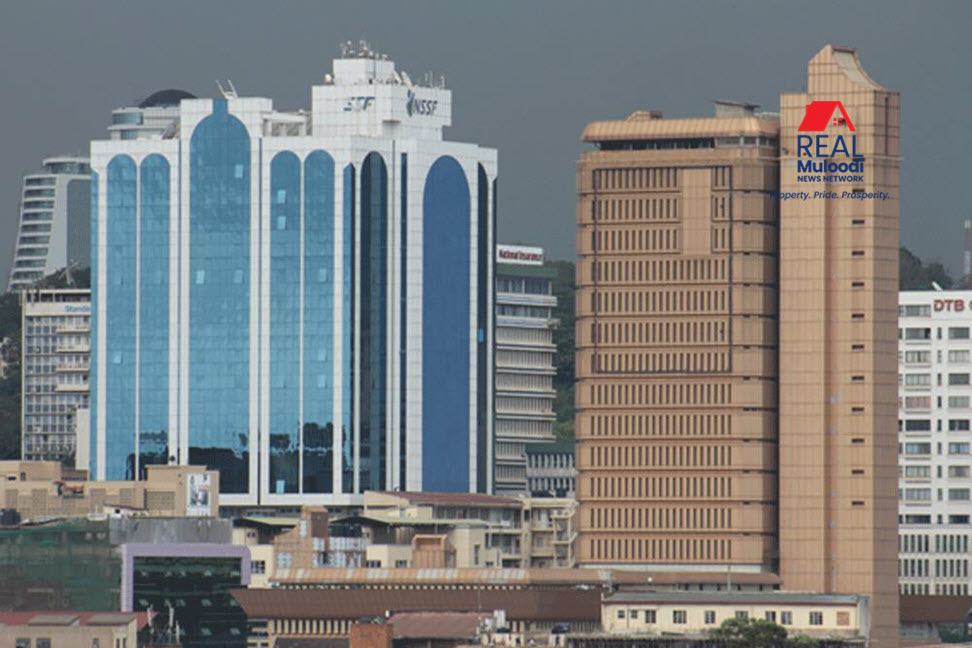UGANDA, Kampala | Real Muloodi News | According to the Deputy Governor of the Bank of Uganda (BoU), Martin Atingi-Ego, borrowing in the private sector is moving at a snail’s pace due to the fourth consecutive increase in the Central Bank Rate (CBR) since June 2022.
Following the October Monetary Policy Meeting which saw the CBR raised to 10%, the Deputy Governor said demand for loan intakes, loan approvals and applications to commercial banks has declined.
“Indeed, growth in private sector credit and monetary aggregates had moderated, signalling the eventual impact on aggregate demand,” the Atingi-Ego’s statement reads.
However, the BoU’s main concern is that core inflation is over 5% excluding food, energy, and fuel. Therefore, the Deputy Governor said BoU would raise the CBR further if inflation continues to go up.
The Central Banks sets benchmark interest rates to guide borrowing costs and the pace of economic growth. Over the last nine months of hiking the CBR, commercial banks have raised their lending rates by between 2% and 2.5% as a result. However, this has not resulted in a fall in inflation which reached an all-time high of 8.1% at the end of October.
Notable Slow Pace
According to the August 2022 Monetary Policy Report, “Private Sector Credit (PSC) growth remains weak owing to weak aggregate demand. The weak aggregate demand is being amplified by weakening balance sheets of both households and firms as the rising inflation takes a toll on the cash flows of both households and business sectors, inducing higher risk aversion of the lenders.”
According to the research, private sector loan growth was still less than 10% yearly between June 2021 and June 2022.
After the economy was reopened in January, private sector credit had begun to increase, but inflationary pressures from March and the ensuing increase in the CBR have caused it to slow down once more.
The BoU numbers show a considerable decrease in loan applications and approvals from the prior quarter in the quarter ending June 22.
Notably, just 52% of loan requests were accepted in the quarter ending in June 2022.
This represents a decrease from 54% in the quarter ending in March 2022 and 56% in the quarter ending in December 2022.
The BoU anticipates a further decline in loan applications and approvals, which is why the CBR was increased to stifle demand.
It’s unclear from commercial banks’ half-year data provided as of June 30, 2022, if loans are slowing down.
In the first half of 2022, the loan book of Bank of Baroda increased by 20% to Shs1 trillion, the loan book of Stanbic Banks increased by just 2% to USh3.8 trillion, and the loan book of DFCU decreased by 16% to USh1.4 trillion.
This does not accurately reflect the state of the economy, but it does show how banks have begun to modify their lending.
Yet, the loans from the Bank of Baroda cannot be compared to those from Stanbic and DFCU. Rarely risk-averse, the Bank of Baroda has only had 1.4% (2019) of its loans in non-performing credit status during the past three years.
NPLs at Baroda has averaged 0.8% over the past three years, the lowest rate of any commercial bank save Citi Bank.
Stanbic and DFCU deal with clients impacted by economic shocks, which explains why lending has slowed down.
Temporary Solution
Economic growth will likely be harmed by BoU’s efforts to control inflation by hiking the CBR and banks’ subsequent interest rates.
Businesses that depend on commercial banks for loans are already crying out for assistance, while those with adjustable interest rates suffer.
While businesses are making less money owing to stifled demand, their interest rates are rising.
The Kampala City Traders Association (KACITA) and the Uganda Manufacturers Association have expressed worry about the rising interest rates (UMA).
In a petition to Parliament on October 4, 2022, KACITA emphasised that the high-interest rates were causing lower levels of productivity and higher costs in the economy.
They state in their petition that the “higher CBR means the higher interest on bank loans to reduce the borrowing appetite by business people.”
Despite these reservations, the BoU insists that raising the CBR is necessary for the economy to rein in inflationary trends.
“Curing the economy of inflation becomes urgent for securing people’s survival and well-being. Unfortunately, restoring inflation to low and stable levels involves taking medicine with some temporary side effects,” Atingi-Ego the BoU Deputy Governor states.
However, given that there have already been economic losses brought on by higher interest rates, it is unknown how severe these side effects will be.
READ MORE LIKE THIS:
Uganda Raises Interest Rates to 9 Per Cent, Warns More Hikes to Come



